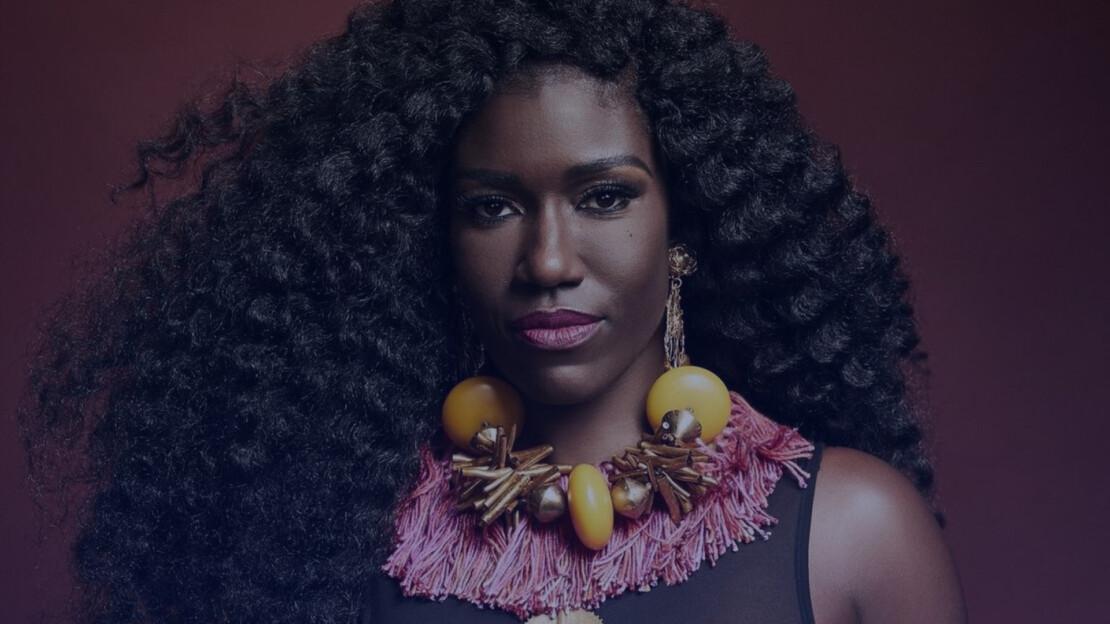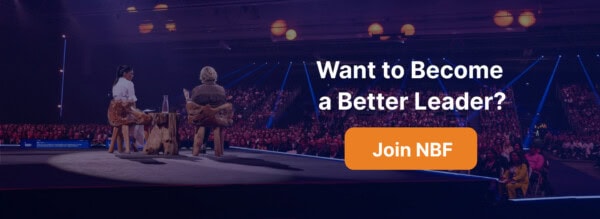30May2024
We had the honor to interview Bozoma Saint John, a powerhouse in the world of marketing and branding. Known for her dynamic leadership and trailblazing career, Boz has held pivotal roles at major companies like PepsiCo, Apple, Uber, and Netflix.
In the interview, Bozoma shared her brilliant insights on what it takes to build a badass brand, emphasizing the importance of authenticity, specific values, honest communication, and transparency. Join us as we learn how to foster genuine connections with customers, maintain brand integrity amidst changing trends, and lead with courage and humanity!
Authenticity and Truth
A badass woman known for creating badass brands, so where else could we start than by asking her what building a badass brand takes? Boz told us that a badass brand doesn’t have a definition, there’s no formula to produce badassery. The only necessary ingredient is authenticity.
‘Authenticity’ is a term that gets thrown around quite a bit. Boz defines it as being true to the needs, values, and purpose of the brand. “If it is a business brand, it means that you can’t pretend to be an irreverent product when you are a useful product or a tactical product.” Authenticity can get confused as people think it involves being funny, inspiring, or using certain tricks and tactics to appeal to people. Sometimes that simply doesn’t apply to the brand.
“A badass brand really just starts with being truthful and honest. Showing up as your real self. And the self can be seen as a business.”
Values That Speak Volumes
Apart from a splendid product and immaculate services, brands can stand out favorably through their values. Boz warned us that companies often fall into the trap of trying to appeal to a wide range of customers through broad value systems. According to her, simplicity and specificity are key.
“When you talk about value systems you can’t just say ‘well, we’re honest.’ Or ‘we are ethical.’ Everybody has to be honest, everybody has to be ethical. So what is it within the idea of honesty or being ethical that your brand is actually executing?”
Don’t discuss values that you are expected to have to begin with, but highlight what you offer that is different from others. Although it might sound counterintuitive, being specific about your values does not exclude different groups of potential customers. Just like with people, if someone claims to like everything, would you believe them?
“The more specific you get, the more honest you are, the more people are going to identify with your product or service.”
Connections through Honest Communication
Values play a large role in connecting a brand with its customers. Even more important than the values however, is the way they are communicated. According to Boz, the whole point of marketing and advertising is communication. After you are specific about who you are, what you stand for, and what you offer, you need to communicate it in a way that is welcoming.
Boz gave us an example with ice cream flavors: “You wouldn’t say ‘I like vanilla ice cream, and everyone who likes chocolate ice cream, you’re not allowed to come over here.’ You know you would never say that. So, how can you talk about the value proposition of vanilla, even to people who love chocolate?”
“The relationship between the company or the brand and the consumer is first being honest, as the company, and then communicating honestly and truthfully about who you are to the customer. And when you do that they will trust you and they will want to be involved.”
The True Meaning of Transparency
Transparency has become much like a trend in branding. It is on the top of the list for companies, yet Boz believes companies aren’t transparent enough yet.
When we think of a brand, we often think of a faceless organization of some kind, forgetting the people behind it. Not just behind it, but the people who make it. Companies and brands are built by people, of people, and leaders play a key role in shaping both. Therefore, transparency is not merely a requirement for a brand, but a necessity for its leaders.
“You can lead anybody down any kind of path. But are the people following you doing it in joy or are they doing it in confusion?”
According to Boz, the people in a company need to understand who their leaders are and why they make the decisions they make. Understanding creates trust and loyalty, and this transparency is also reflected in the brand. As employees need to understand their leaders, customers need to understand the brand. This transparency doesn’t require spilling one’s deepest secrets, but honesty about the qualities and experiences of leaders and their brands that ultimately shape their decision-making.
“I as a black woman, I as a mother, am going to make decisions that are different than a white man and someone who is not a mother. That is the truth.”
Change the Story, Not the Values
With all the changes happening in the business environment, how can brands stay relevant? Having broad values and changing them constantly in an attempt to keep up isn’t a solution according to Boz. Instead, companies should change the story.
“I think that any brand that changes its values or its core proposition too often is probably lying. Therefore, customers, consumers, and the audience won’t trust them and they will fail. I think the only thing that really needs to evolve is how you tell the story.”
The value proposition, the expectations, and the key elements of the product need to remain consistent throughout the years. After that, it is about narrating a story that appeals to different audiences and changes in them.
Boz gave the example of Pepsi. The expectations for the product include that it’s carbonated, sweet, refreshing, and flavorful. Beyond that, you will create a different story for adults and for teenagers and children. And for Olympic athletes, as Pepsi has sponsored the Olympics in the past. For 16-year-olds, you might present Pepsi in a fun light, whereas with athletes, you might present it as a special treat, an escape and a break from the intense training. The product is the same, its qualities are the same, but the way you talk about it is vastly different.
Brands are a Reflection of Humanity
Wrapping up the interview, we asked Boz if there was anything she’d like to add. She gave us a few important words on brands and humanity: “I like to talk about brands as humans because humans are the ones who are running the brands.” She reminded us that we can’t simply wash our hands and separate ourselves from the company or brand. “Even as I will speak at the event, I am very adamant that we talk about our humanity and how our experiences as unique humans affect the brands that we work for. And also affects how we talk about them and how we present them to other human beings.”
“We talk about brands so much and we don’t want to forget the humanity in the brand.”
Courageous Leadership
As Boz is one of our keynote speakers at Nordic Business Forum 2024, we asked her what Courageous Leadership means to her and what advice she’d like to give to leaders who aspire to be courageous. Her answer related to what she had just told us about being human:
“Humans are flawed. There’s no perfect human. And so courageous leadership means that you show up fully, with your flaws and all. Nobody asks for a perfect leader. No one. Courageous leaders are those who make mistakes, who own up to those mistakes, those who use their personal experiences to help make decisions for the masses. And can do so in a way that is transparent and real. That is courage.”
“Instead of pretending you’re someone you’re not and pretending to be an idea of this poster child of leadership, it is much better to do it in a real way. And I think it takes real courage to show up as your full self.”

 by:
by: 

